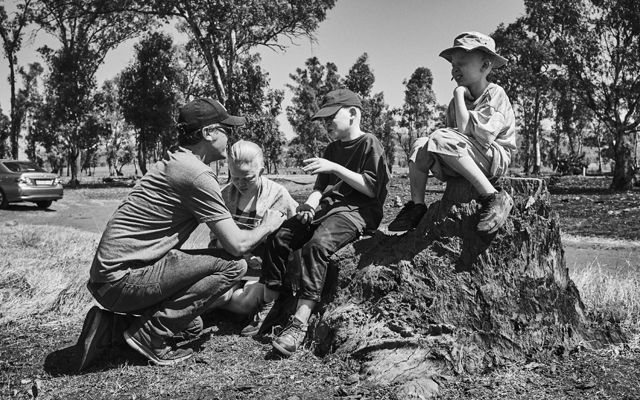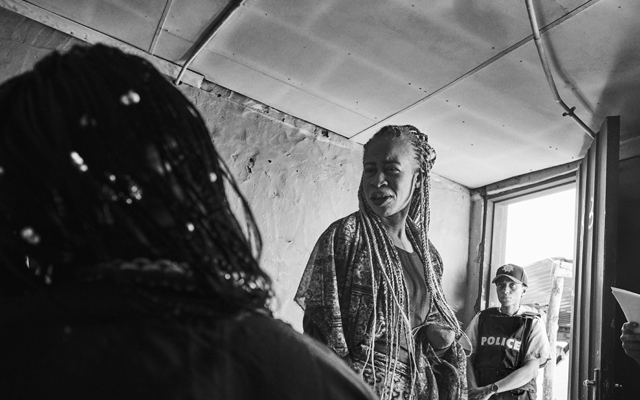I’ve recently completed shooting White Gold, my winning entry into The Pitch — a film fund which offers pitching masterclasses to its top twenty submissions, and a £30,000 production budget to the winning filmmaker.
I’ve been able to bring a passion project to life as a result of honing my pitching skills and winning the fund. In 2016, whilst self-shooting a documentary in Tanzania, I met a young girl with albinism who’d had both of her arms hacked off by a witchdoctor in the name of witchcraft. The encounter deeply moved me and through developing my concept via the requirements of the competition, the story of White Gold came to be.
The principle of pitching is applicable industry-wide, so I’ve written some takeaway tips based on my experience of the process and ultimately winning the fund. I’m not an expert; these are simply my own observations and experience, having survived a pretty intense pitching process. Some of these points sound obvious but they are extremely easy to forget in the heat of the spotlight! Here are my top five tips...

1. You won’t die
If you are anything like me, the idea of standing up in front of a panel of industry experts does not fill you with joy and is actually more akin to feeling like a fish flapping about in hot sand. I needed to shift my thinking from dread to excitement. Excitement that my project gets the undivided attention for a whole 15 minutes — by people who could actually bring it into existence. That mindset shift had a positive influence on my whole demeanor and ultimately enhanced my presentation.
2. Don’t be a weirdo
Early attempts at my pitch had me pacing about, doing odd things with my hands or looking sad and grumpy. Work on keeping your feet still and being aware of what your body is doing. Relax and don’t fidget. Be engaging and smile. Be authentic and genuine; if you sound like you are selling a used car - they won’t trust you.

3. It’s all about the feels
People quickly forget details, but they don’t forget how you make them feel. You believe passionately in your project and know it inside out; this is your chance to communicate that in a clear, concise way. Keep the story at the heart of your pitch but keep it simple. In essence, ALL stories have been told before, so it is your own voice as a filmmaker that will make it unique. With this in mind, keep your presentation personal. There are millions of stories out there but only one of you, so bring as much of yourself as you can to make an impact on an emotional level.
4. The three words you want to hear
You need to time your pitch carefully and be able to adapt it depending on your slot allocation. You want to strike the correct balance between imparting enough information about your project but also leaving them wanting more. Your pitch should be like ‘the smell of the kitchen’ rather than boring recipe details and oven temperatures. Leave enough room in your presentation for them to ask questions and hopefully you’ll hear the words,‘tell me more’. If you hear those words, they’re interested. You can then dig deeper into those areas and add greater value to your concept.

5. The D***head Test
Through making films with people from all walks of life, I’ve met some fascinating individuals — all with their own unique experiences and takes on life. One such person was on the selection team for the SAS. He shared with me the key ingredient in what ultimately dictates if a candidate does or does not make it through one of the most gruelling selection processes in the world: The Dickhead Test. In its simplest form this consists of, ‘yes this person is qualified, has a lots of attributes on paper but…can we stand being in his company for next year or so? I feel this principle strongly applies to filmmaking and potential relationships forming – or not. With this in mind, leave your ego at the door. Be confident and know your stuff but be equally humble, flexible and don’t be a dickhead!
Pitching our ideas is tough and the window of opportunity is painfully small. As a competition, The Pitch’s benefits to the overall winner are obvious but, unusually for a film fund, there is a genuine focus on developing the pitching and storytelling skills for multiple entrants. There is still much to learn but thankfully, following this process, I now know a lot more than I did.
Entries for this year’s The Pitch close on October 7th, with a late deadline on October 21st. Find out more.
You can follow the progress of ‘White Gold’ across social media channels @thepitchwhitegold.
Images by @photo.layne






Have Your Say
Join the discussion on Facebook